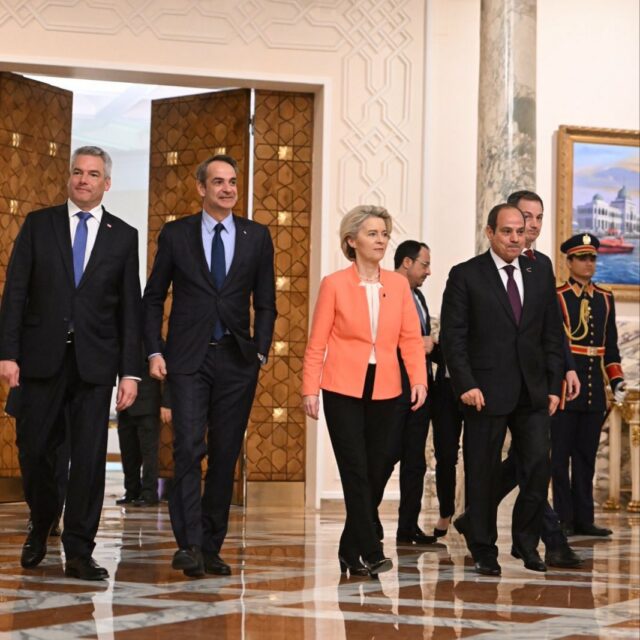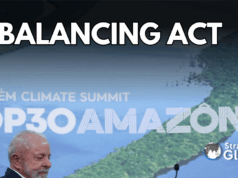The European Union (EU) has been busy trying to fast-track aid money to Egypt. According to an AP report, the 27-member bloc has agreed to send 1 billion euros ($1.1 billion) out of a larger package of 7.4 billion euros ($8 billion) in financial assistance to the North African country. This aid package, announced on March 17, will be sent through a procedure that bypasses parliamentary oversight and other safeguards that Europe normally puts in place.
European Commission president Ursula von der Leyen headed a delegation of several European leaders meeting Egyptian President Abdel Fattah el-Sissi in Cairo on March 17, where the aid package was announced. The EU also upgraded its relationship with Egypt to a “strategic partnership.”
Tweeting after the visit, Von der Leyen said, “Glad to be in Cairo to mark a new milestone in the EU-Egypt strategic partnership. With Egypt’s political and economic weight and its strategic location in a very troubled neighbourhood, the importance of our relations will only increase over time.”
El-Sisi’s office said the deal will achieve “a significant leap in cooperation and coordination between the two sides and to achieve common interests.”
Europe is believed to be fast-tracking the money to Egypt right before the European Parliament elections are due on June 6-9. Analysts believe the speed of the delivery of aid to Egypt is due to the potential migrant crisis that faces the continent. Egypt is heavily reliant on infrastructure projects, tourism and shipping as revenue earners, which the war in Gaza has hurt, leaving a large number of migrants ready to go to Europe. The International Organization for Migration (IOM) believes there are nine million migrants in Egypt that could leave Egypt and head for Europe should the current crisis continue.
According to DW similar deals have been stitched up by the EU with Libya, Tunisia, and Mauritania.
Human Rights Watch has criticised the EU’s actions, calling it a “cash-for-migration-control approach.” It said such deals enabled “authoritarian rulers while betraying human rights defenders, journalists, lawyers, and activists whose work involves great personal risk.”
Traveller, bibliophile and wordsmith with a yen for international relations. A journalist and budding author of short fiction, life is a daily struggle to uncover the latest breaking story while attempting to be Hemingway in the self-same time. Focussed especially on Europe and West Asia, discussing Brexit, the Iran crisis and all matters related is a passion that endures to this day. Believes firmly that life without the written word is a life best not lived. That’s me, Ashwin Ahmad.





